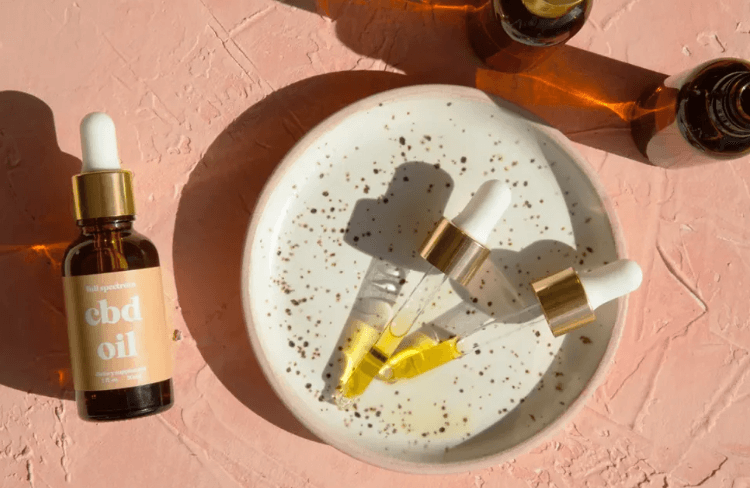The question of whether individuals can purchase CBD at the age of 18 is complex, as it hinges on varying state regulations and federal guidelines. While some states allow this age group to access hemp-derived CBD products, others set a higher age limit of 21. Understanding these distinctions is essential for potential buyers, particularly as the regulatory landscape continues to shift. As consumers seek clarity on legal purchasing options, the implications of these laws on accessibility and safety remain critical points of consideration. What might these regulations mean for young consumers navigating the burgeoning CBD market?
Overview of CBD Regulations
The regulatory landscape surrounding cannabidiol (CBD) products is complex and varies significantly by jurisdiction, impacting legal access and purchasing age restrictions.
Current CBD market trends indicate a growing consumer interest, prompting discussions about future regulations.
As policymakers navigate this evolving landscape, understanding local laws becomes crucial for consumers seeking freedom in accessing CBD products, while ensuring compliance with existing frameworks.
See also: Can You Overdose on Cbd
Age Restrictions by State
Age restrictions for purchasing CBD products vary widely across states, reflecting differing local regulations and cultural attitudes toward cannabis-derived substances.
In some states, individuals can buy CBD at 18, while others impose a minimum age of 21.
Age verification processes are implemented to ensure compliance with state laws, emphasizing the importance of understanding local regulations before attempting to purchase CBD products.
Federal Laws on CBD
The legal status of CBD at the federal level primarily stems from the 2018 Farm Bill, which legalized hemp-derived products containing less than 0.3% THC.
However, despite this legalization, age restrictions for purchasing CBD products can vary, leading to potential confusion among consumers.
Understanding these federal laws is essential for individuals seeking to buy CBD, especially those who are 18 years old.
Legal Status Overview
Federal laws regarding cannabidiol (CBD) have evolved significantly since the 2018 Farm Bill, which legalized hemp-derived products containing less than 0.3% THC.
This legislative change has important legal implications for CBD purchasing, allowing consumers greater access to these products.
However, the varying state regulations can create complexities, necessitating awareness of local laws to ensure compliance and informed purchasing decisions.
Age Restrictions Explained
Understanding the legal landscape surrounding CBD also involves recognizing the age restrictions that apply to the purchase of these products, which can vary significantly across different jurisdictions.
Federal laws typically require age verification, often limiting sales to individuals 18 years and older.
This approach aims to mitigate youth marketing concerns, ensuring that CBD products are accessed responsibly within the adult demographic.
Differences Between Hemp and Marijuana
Hemp and marijuana are two varieties of the Cannabis sativa plant, distinguished primarily by their chemical composition and usage.
One of the most significant differences lies in their tetrahydrocannabinol (THC) content, with hemp containing less than 0.3% THC, while marijuana typically has higher levels.
Understanding these distinctions is crucial for consumers, particularly when purchasing CBD products, as they can vary significantly in legal status and effects.
Plant Source Distinction
A crucial distinction between hemp and marijuana lies in their chemical compositions, particularly in the levels of tetrahydrocannabinol (THC) and cannabidiol (CBD), which significantly influence their legal status and applications.
Hemp cultivation is legal under federal law, while marijuana legality varies by state.
This disparity impacts not only agricultural practices but also the accessibility of CBD products derived from these distinct plants.
THC Content Comparison
The primary distinction in THC content between hemp and marijuana is that hemp is defined as containing 0.3% THC or less, while marijuana typically has higher concentrations, often exceeding 20%.
This THC percentage analysis is crucial for consumers seeking a CBD potency comparison, as the psychoactive effects and legality differ significantly.
Understanding these differences allows informed decisions regarding usage and legality in various jurisdictions.
Health Benefits of CBD
Numerous studies have highlighted the potential health benefits of CBD, indicating its efficacy in alleviating anxiety, reducing inflammation, and managing chronic pain.
The therapeutic uses of CBD extend to various conditions, including epilepsy and insomnia, showcasing its versatility as a natural remedy.
These findings underline the growing interest in CBD health benefits, prompting further exploration into its role in holistic health and wellness.
Where to Buy CBD Products
With an increasing recognition of CBD’s health benefits, consumers are now faced with a variety of options for purchasing CBD products, ranging from physical retail stores to online platforms.
Both online retailers and local dispensaries offer a diverse selection of products.
It is essential for consumers to research and choose reputable sources to ensure quality and compliance with legal standards.
Types of CBD Products Available
A diverse array of CBD products is available to consumers, including oils, edibles, topicals, and capsules, each offering unique methods of consumption and potential benefits.
These product varieties cater to different preferences and lifestyles, allowing individuals to explore the health benefits associated with CBD.
Understanding the options can empower users to make informed choices that align with their wellness goals.
Risks and Considerations
Engaging with CBD products at a young age necessitates a careful examination of potential risks and considerations, including legal implications, health effects, and product quality.
Consumers should be aware of the health risks associated with unregulated products, which may contain harmful additives.
Additionally, understanding the varying legal implications by state is crucial to ensure compliance and avoid potential legal issues when purchasing CBD.
Tips for First-Time Buyers
For first-time buyers of CBD products, it is essential to understand the legal requirements that govern their purchase, as regulations can vary significantly by location.
Additionally, researching product quality is crucial to ensure safety and efficacy, as not all products on the market meet the same standards.
Buyers should prioritize reputable sources and verified lab testing to make informed decisions.
Understand Legal Requirements
Navigating the legal landscape surrounding CBD purchases is crucial for first-time buyers to ensure compliance with local regulations and avoid potential legal issues.
Understanding the legal age for purchasing CBD varies by state, impacting CBD availability.
Buyers should verify state laws to confirm their eligibility and ensure they are purchasing products from reputable sources that comply with legal standards.
Research Product Quality
Once buyers have confirmed their legal eligibility to purchase CBD, the next step involves thoroughly researching product quality to ensure they select safe and effective options.
Investigate product sourcing practices to verify transparency and ethical standards.
Additionally, prioritize brands that conduct third-party quality testing, as this provides independent verification of purity and potency, ultimately fostering informed choices and enhancing consumer freedom in the marketplace.
Resources for Further Information
Accessing reliable resources is essential for young adults seeking to understand the complexities surrounding CBD products, including their legal status, health implications, and market variations.
Engaging with CBD education initiatives can provide valuable insights, while local CBD resources offer practical information tailored to specific regions.
Utilizing these tools can empower individuals to make informed decisions regarding their CBD purchases and usage.
Conclusion
Navigating the landscape of CBD regulations resembles traversing a complex maze, where age restrictions and state laws intertwine.
While some states welcome individuals aged 18 and older to access hemp-derived products, others stand as sentinels, enforcing a minimum age of 21.
Understanding these legal nuances is essential for informed purchasing.
As the CBD market continues to evolve, remaining vigilant and informed will illuminate the path toward safe and lawful consumption, ensuring a harmonious experience within the realm of wellness.





